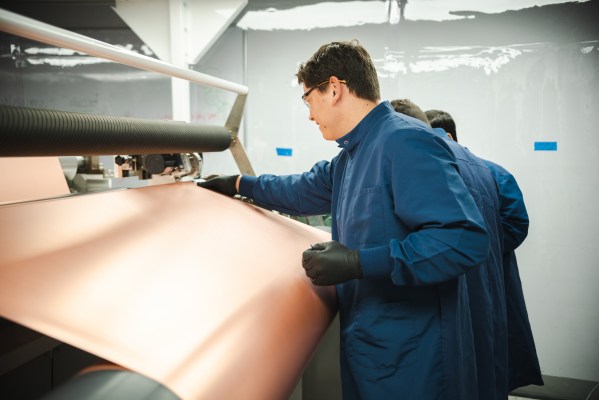Redwood Materials lands $2B conditional loan from DOE

Battery materials and recycling startup Redwood Materials has secured a conditional commitment for a $2 billion loan from the Department of Energy as part of the Biden Administration’s bid to build up a supply chain for EVs in the United States.
The conditional commitment from DOE’s loan program office, which was announced Thursday, is part of the Advanced Technology Vehicle Manufacturing Loan Program. The milestone-based financing will be provided to Redwood in tranches to support its growth and the expansion of its headquarters in Nevada.
Lithium-ion batteries contain three critical building blocks. There are two electrodes, an anode (negative) on one side and a cathode (positive) on the other. Typically, an electrolyte sits in the middle and acts as the courier to move ions between the electrodes when charging and discharging. Cathode foils, which account for more than half the cost of a battery cell, contain lithium, nickel and cobalt. Anode contains copper and graphite and is largely responsible for a battery’s charging performance.
Today, cathode and anode components are manufactured overseas, predominantly in Asia. The U.S. government wants to build up a domestic supply chain, a change spurred on by new laws like the Inflation Reduction Act and support from the loan program.
Redwood isn’t the only company to secure a conditional loan since the U.S. government revived the loan program last year — although it’s one the largest. In June, GM and LG Energy received a $2.5 billion loan to help finance the construction of new lithium-ion battery cell manufacturing facilities. Last month, lithium company Ioneer received a conditional commitment for a loan of up to $700 million to help it develop the Rhyolite Ridge Lithium-Boron Project in Esmeralda County, Nevada.
This latest financial boost will help Redwood reach its goal to produce 100 GWh annually of ultra-thin battery-grade copper foil and cathode active materials from both new and recycled feedstocks — enough battery materials to domestically produce more than a million electric vehicles a year.
Redwood’s main operations today are in Carson City, Nevada, where several years ago it began recycling the scrap from battery cell production at the Gigafactory operated by Tesla and Panasonic. Redwood extracts and processes materials like cobalt, nickel and lithium that are typically mined, and then supplying them back to Panasonic. The company also recycles consumer electronics like cell phone batteries, laptop computers, power tools, power banks, scooters and electric bicycles to access, process and supply critical materials to companies like Panasonic and Amazon.
Redwood Materials has experienced explosive growth in the past two years from raising $700 million in 2021 and moving beyond recycling and into cathode and anode production to announcing a new battery materials campus in Charleston, South Carolin and expanding its partnership with Panasonic, including a multi-billion-dollar deal to supply the company with cathode materials.
Redwood recently began producing anode copper foil at its Nevada headquarters and expects to begin cathode qualification later this year.
And its footprint promises to get larger in the coming year. Redwood announced in December plans build a new battery materials and recycling facility on a 600-acre campus near Charleston, South Carolina. That campus will eventually have the capacity to produce 100 GWh a year of cathode and anode components.
Redwood founder and CEO JB Straubel has previously told TechCrunch he expects production of both anode and cathode to scale to 500 GWh/year of materials by 2030, enough to power five million electric vehicles.

